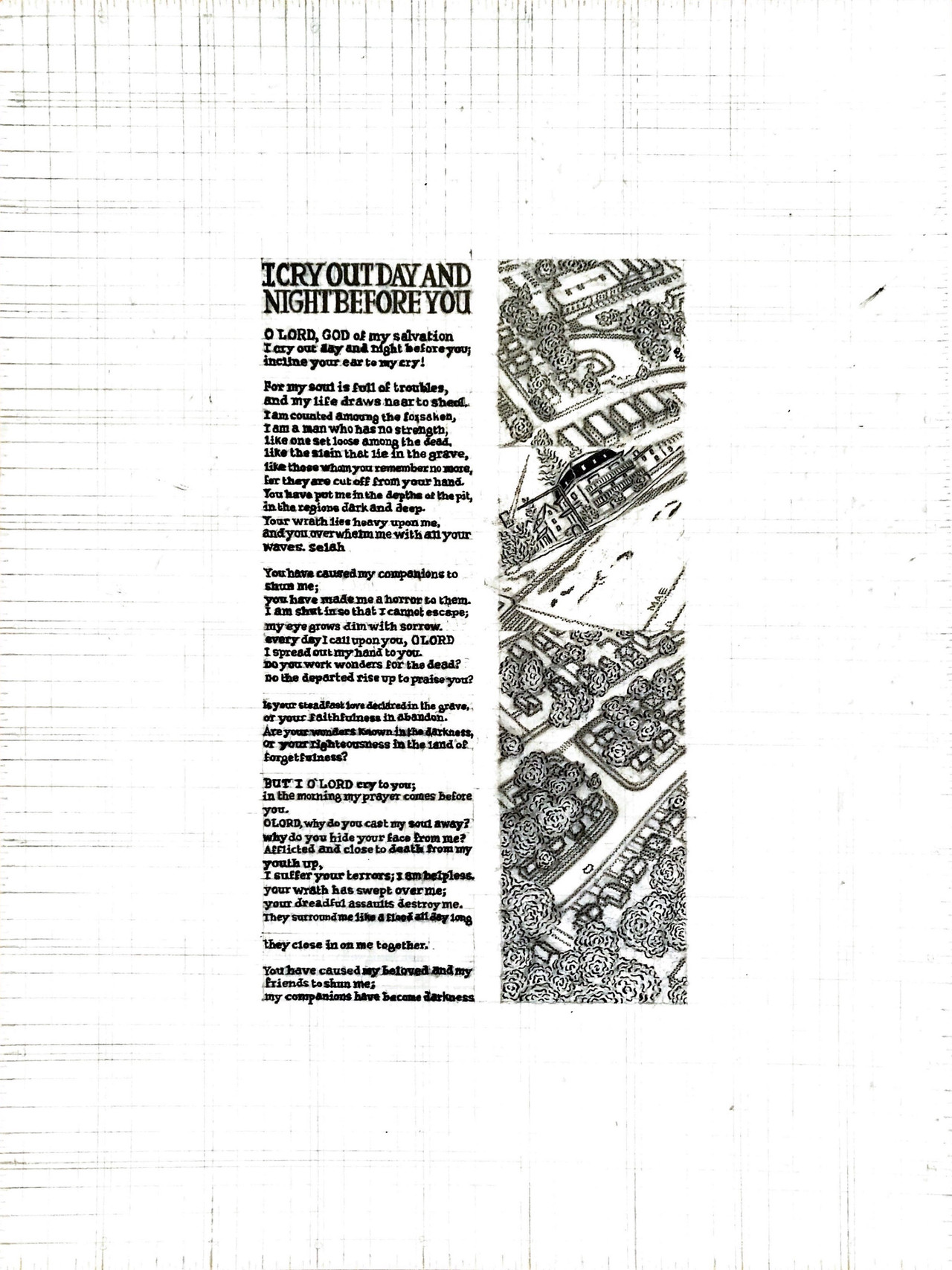HOME | DD
 maecentric — Psalm 88 - phone scan
maecentric — Psalm 88 - phone scan

Published: 2023-08-20 21:48:49 +0000 UTC; Views: 729; Favourites: 7; Downloads: 0
Redirect to original
Description
Although still working full-time, Ive had a few months off from school this summer and have read as much as I could about Christianity, trying to finally understand the religion with the time available. I grew up in an almost militantly atheist family/community and never had any reason to believe in god nor given any conceptualization of God. Like many people I just assumed the universe was made of unconscious stuff and somehow, magically, conscious awareness popped into existence in the brain somehow. I imagined this world of stuff looked somewhat like the experiences I had of the world around me, even when I wasn't looking at it; but something wasn't quite right. I did have philosophical, truth seeking inclinations, read lots on physics, and remember staring at things and thinking "this is so weird, that this stuff is here." "How did it get here? And they say it's in a superposition of possibilities when Im not looking???"Ultimately I was very lucky to discover the Hard Problem Of Consciousness and then several years latter the philosophical debates trying to settle the issue. The world around us is mind stuff not "matter." Its a collection of experiences had by conscious awareness, and conciseness comes first, not its images. Trying to reduce conscious awareness to the brain, its own image, is like trying to reduce Rembrandt to his painting The Night Watch - it's stupid. Mind creates the image we call the brain not visa versa. Mind holds the universe in place for each of us, and the only empirical conclusion with explanatory power, is that more mind holds the universe is place "outside" of us.
We are navigating something's imagination - just like when we're dreaming - and of course this bring us to God. So Ive finally gotten around to reading what the Christians have said on the matter this summer. Ive read the Confessions of Saint Augustine, I read an Introduction to Christianity by Pope Ratzinger, Ive read Who was Jesus by N.T Wright, I read a good biography on Paul by N.T Wright, and weirdly Ive read Hamlet by Shakespeare. Ive also read some chunks of the Old Testament including Genesis, Exodus, Leviticus, Isaiha, and also a number of letters of Paul including Galatians, Colossians and 1 and 2 Corinthians. I read Mathew/Mark/Luke/John last summer, and although I find the incarnation to be fascinating theologicaly, Im very quickly learning that to understand Christianity one must understand Judaism.
The story of the Jews is the story of God choosing them, loving them, being on their side, helping them survive Egypt, the Babylonian Captivity and then finally Rome. Consistently throughout the Old Testament they hope the One God will finally come through to destroy Israel's Idolitrus and morally impure enemies, but more importantly Y---- will bring all the nations together under his rule, establishing his Kingdom on earth with Israel on top. The reason Jesus as Messiah was such a scandalous idea, as Paul mentions in his letters "A scandal to Jews, and absurd to Gentiles," is that the Messiah was killed. The Messiah as predicted by the Jews, most beautifully through the prophet Isaiah and Daniel(who I haven't read), was supposed to be a king winning a political victory like king David - not crucified as a martyr in service of others. Jesus is a beautiful twist on the Jewish story and hope. In resurrecting him God said "it's not about political victory, but spiritual victory."
However, I have to admit, I really admire the stubbornness of the Jews in rejecting Jesus. It definitely appeals to my contrarian side, being the ultimate underdogs. They have been persecuted mercifully ever since the fall of Jerusalem to the Romans, but still hold to their practices and beliefs as they've been scattered across Europe. Right now Im halfway through Paul and Palestinian Judaism by E.P Sanders, a very scholarly defense of the Jewish faith against early 20th century New Testament scholarship. All the characteristics inherit to Christianity are found in Judaism - redemption, a loving and forgiving God(transpersonal mind), atonement, and most importantly intention. The Jews were always under attack for being too Legalistic in executing the commandments given to Mosses, but in combing through the Rabbinic works written between 100 BCE and 200 CE, such as the Mishna(oral commentaries on the Torah, compiled after the destruction of Jerusalem by Rome) Sanders proves the ritualistic practices weren't systematic, but were carried out with an incredible amount of debate, uncertainty and with a huge emphasis on good intention - the significance of intention and thoughts is almost always credited entirely to Jesus and Christianity by New Testament Scholars. Jesus after all is calling out fellow Pharases and the laws of Moses in the Gospels.
Anyway, I came to know God first through philosophy and refuse to whole heartedly adopt any one religion over the exclusion of others. Ive begun to attend a Catholic Church and I pray the Jewish Shema everyday while I walk, matching each phrase to my footsteps, but Ive learnt its best to be open when it comes to religion. Afterall, with all the UFO activity going on we may be in for another revelation of some kind anyway, who knows. Im not a postmodernist, there is truth, there is such a thing as one religion or metaphysics being closer to the truth, but I have no confidence that any one tradition has an entire grasp on the mind of God. That seems to be the healthiest approach. In fact Near Death Experiences give us the most direct first hand account of this mind, and watching NDE testimonies is an extremely important supplement to my reading.
www.youtube.com/watch?v=p5DLmC…
























